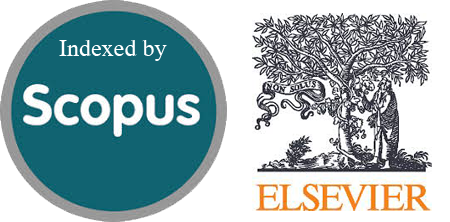Dynamics in Classical Islamic Education: Between Nonformal Autonomy and Madrasah Hegemony (650–1250 CE)
DOI:
https://doi.org/10.14421/skijier.2025.91.01Keywords:
classical Islamic education, madrasah, ḥalaqah, teacher authority, ijāzahAbstract
Classical Islamic education played a central role in shaping the scientific architecture and social structure of Muslim societies from the 7th to the 13th century CE. Examining this period is essential for tracing the epistemological roots and institutional dynamics that continue to influence contemporary Islamic educational systems. This study employs a conceptual-analytical approach and a historical-critical method to investigate both formal institutions (madrasah) and informal ones (ḥalaqah, maktab, bookshops), including the characteristics of their curricula, modes of knowledge transmission, and the authority of teachers. The main findings reveal a dualism between the academic freedom of informal systems and the scholarly authoritarianism of standardized madrasah affiliated with state power. While informal education offered autonomy and flexibility in the pursuit of knowledge, both systems ultimately contributed to epistemological conservatism due to the dominance of textual authority and limited space for innovation. The implications suggest that the epistemic and political structures of classical Islamic education fostered a scholarly culture that was passive and resistant to interdisciplinarity. This study is limited in its geographical scope and does not fully address the dynamics of contemporary praxis. Therefore, a reconstruction of the Islamic educational system is needed—one that balances the authority of revelation and reason, and fosters a scientific ethos, intellectual freedom, and more transformative scholarly dialogue.
Downloads
References
Afsaruddin, Asma. “Egalitarianism in Islamic Thought and Praxis.” In The Cambridge History of Socialism, edited by Marcel van der Linden, 1:56–78. The Cambridge History of Socialism. Cambridge: Cambridge University Press, 2022. https://www.cambridge.org/core/product/16B6B2EBBA8FC0913A69407F2AAE70BC.
Ali, Nur. “Integrating the Program of School Curriculum and Pesantren Education: Case Study on the Pesantren Located in the Madrasah at Malang City.” Abjadia 5, no. 1 (June 29, 2020): 1. http://ejournal.uin-malang.ac.id/index.php/abjadia/article/view/9527.
Bano, M. Female Islamic Education Movements: The Re-Democratisation of Islamic Knowledge. Female Islamic Education Movements: The Re-Democratisation of Islamic Knowledge. Oxford Department of International Development, Brasenose College, University of Oxford, United Kingdom: Cambridge University Press, 2017. https://www.scopus.com/inward/record.uri?eid=2-s2.0-85044940908&doi=10.1017%2F9781316986721&partnerID=40&md5=9dbf6f222cef226482a775844aa7ad45.
Berkey, Jonathan Porter. The Transmission of Knowledge in Medieval Cairo: A Social History of Islamic Education. Princeton, NJ: Princeton University Press, 1992. https://press.princeton.edu/books/paperback/9780691034098/the-transmission-of-knowledge-in-medieval-cairo.
Brown, Jonathan A C. Hadith: Muhammad’s Legacy in the Medieval and Modern World. Oxford: Oneworld Publications, 2009.
Crone, Patricia. Meccan Trade and the Rise of Islam. Oxford: Basil Blackwell, 1987.
Fadhil, Muhammad Yusuf, and Saliha Sebgag. “Sufi Approaches to Education: The Epistemology of Imam Al-Ghazali.” Nazhruna: Jurnal Pendidikan Islam 4, no. 1 (March 1, 2021): 91–107. https://e-journal.uac.ac.id/index.php/NAZHRUNA/article/view/834.
Gesink, I F. Islamic Reform and Conservatism: Al-Azhar and the Evolution of Modern Sunni Islam. Islamic Reform and Conservatism: Al-Azhar and the Evolution of Modern Sunni Islam. Baldwin-Wallace College, Berea, OH, United States: Bloomsbury Publishing Plc., 2009. https://www.scopus.com/inward/record.uri?eid=2-s2.0-85185209427&partnerID=40&md5=dc53946ca4f38e70bc45195092b66f2c.
Giladi, A. “Individualism and Conformity in Medieval Islamic Educational Thought: Some Notes with Special Reference to Elementary Education.” Al-Qantara 26, no. 1 (2005): 99–121. https://www.scopus.com/inward/record.uri?eid=2-s2.0-60949936037&doi=10.3989%2Falqantara.2005.v26.i1.118&partnerID=40&md5=843f6e1e6ec9f9d279097893c8a497e4.
Haidar, M A, M Hasanah, and M A Ma’arif. “Educational Challenges to Human Resource Development in Islamic Education Institutions.” Munaddhomah 3, no. 4 (2022): 366–377. https://www.scopus.com/inward/record.uri?eid=2-s2.0-85188095097&doi=10.31538%2Fmunaddhomah.v3i4.309&partnerID=40&md5=03005e7f15e079e46d061157f67f9228.
Hefner, R W. “Islamic Schools , Social Movements, and Democracy in Indonesia.” In Making Modern Muslims, 55–105. Institute on Culture, Religion, and World Affairs, Boston University, United States: University of Hawai’i Press, 2009. https://www.scopus.com/inward/record.uri?eid=2-s2.0-84872713643&partnerID=40&md5=b5c6766336e0667397d47d42dd53d006.
El Hour, R. “Teaching and Learning in the Islamic West: Some Ideas Regarding the Almohad, Marinid, and Naṣrid Educational Systems.” Religions 16, no. 2 (2025). https://www.scopus.com/inward/record.uri?eid=2-s2.0-85218963189&doi=10.3390%2Frel16020139&partnerID=40&md5=63e00a4d74dd2ab6f9194fbcdf457fdb.
Idriz, M. “Educational Tradition of Ijāzah in Islamic History with Reference to Persian Milieu.” Journal of Islamic Thought and Civilization 12, no. 2 (2022): 179–195. https://www.scopus.com/inward/record.uri?eid=2-s2.0-85144656416&doi=10.32350%2Fjitc.122.13&partnerID=40&md5=6895121d989c865b19069cc0a94f704b.
Idriz, Mesut, and Idha Nurhamidah. “Tradisi Penganugerahan Ijazah Dalam Sistem Pendidikan Islam: Kajian Selayang Pandang.” Ta’dibuna: Jurnal Pendidikan Agama Islam 2, no. 1 (2019): 1–14. https://ejournal.radenintan.ac.id/index.php/tadibuna/article/view/4396.
Kasdi, A, A Karim, U Farida, and M Huda. “Development of Waqf in the Middle East and Its Role in Pioneering Contemporary Islamic Civilization: A Historical Approach.” Journal of Islamic Thought and Civilization 12, no. 1 (2022): 186–198. https://www.scopus.com/inward/record.uri?eid=2-s2.0-85133470323&doi=10.32350%2Fjitc.121.10&partnerID=40&md5=bc9b896e354548f7bf55a6e825585a59.
Kenan, S. “The Formative Period of the Modern University.” Osmanli Arastirmalari - Journal of Ottoman Studies 2015, no. 45 (2015): 333–367. https://www.scopus.com/inward/record.uri?eid=2-s2.0-84946722932&doi=10.18589%2Foa.570017&partnerID=40&md5=5b9e513a52bbfe8140687e200abeecf0.
Lahmar, Fella. “Islamic Education: An Islamic ‘Wisdom-Based Cultural Environment’ in a Western Context.” Religions 11, no. 8 (August 7, 2020): 409. https://www.mdpi.com/2077-1444/11/8/409.
Lahoud, Nelly, and Malcolm H Kerr. The Origins of Islamic Reformism: Egypt and South Asia. Oxford: Oxford University Press, 2004. https://global.oup.com/academic/product/the-origins-of-islamic-reformism-egypt-and-south-asia-9780197200020.
Lessy, Z. “Understanding Multicultural Dimensions in the History of Progressive Science in the Classical Period of Islam (610-1258 CE).” In Interfaith Engagement Beyond the Divide: Approaches, Experiences, and Practices, 133–145. Faculty of Tarbiyah and Teacher Training, State Islamic University Sunan Kalijaga, Yogyakarta, Indonesia: Springer Nature, 2023. https://www.scopus.com/inward/record.uri?eid=2-s2.0-85206146523&doi=10.1007%2F978-981-99-3862-9_7&partnerID=40&md5=c42816eb65003ec875beb9776aa8a444.
Macdonald, M C A. “Literacy in an Oral Environment.” In Literacy and Identity in Pre-Islamic Arabia, edited by M C A Macdonald, 49–118. Burlington: Ashgate, 2009.
Maralottung Siregar. “The Role of Waqf In The Classic Islamic Education Period.” International Journal Of Humanities Education and Social Sciences (IJHESS) 3, no. 3 (2023): 1438–1446.
Muna, Afrida Arinal, and Munirul Ikhwan. “Ibn Mujahid’s Canonical Legacy: Examining Sanad Authentication and Political Factors in the Standardization of Qirā’āt Sab’ah.” Jurnal Studi Ilmu-ilmu al-Qur’an dan Hadis 24, no. 2 (2023): 359–382.
Murdiansyah, Isnan. “Pre-Islamic Arab Societies: Uncovering Cultural Heritage, Social Systems, and Belief Systems.” International Journal of Religious and Interdisciplinary Studies 1, no. March (2022): 67–84. http://ijracs.rumahpeneleh.or.id/index.php/home/article/view/56.
Muspiroh, Novianti. “Madrasah Nizamiyah: Sebuah Momentum Dalam Sejarah Pendidikan Islam.” Jurnal Tamaddun : Jurnal Sejarah dan Kebudayaan Islam 5, no. 1 (October 10, 2017). http://syekhnurjati.ac.id/jurnal/index.php/tamaddun/article/view/1997.
Nakissa, A. “An Epistemic Shift in Islamic Law Educational Reform at Al-Azhar and Dar Al-.Ulum.” Islamic Law and Society 21, no. 3 (2014): 209–251. https://www.scopus.com/inward/record.uri?eid=2-s2.0-84905372333&doi=10.1163%2F15685195-00213p02&partnerID=40&md5=376d42fd1ce3481b0da7af496025597a.
Nakosteen, Mehdi. History of Islamic Origins of Western Education: A.D. 800–1350. Colorado: University of Colorado Press, 1996.
Nasr, Seyyed Hossein. The Essential Seyyed Hossein Nasr. Indiana: World Wisdom, Inc, 2007.
Noorhidayati, S., and T. Aziz. “Hadith Studies in Indonesia: Vernacularization and Teaching Methods of Sahih Al-Bukhari in Traditional and Contemporary Islamic Educational Institutions.” European Journal for Philosophy of Religion 15, no. 3 (2023): 60–80. https://www.scopus.com/inward/record.uri?eid=2-s2.0-85193381047&doi=10.24204%2FEJPR.2023.4182&partnerID=40&md5=51ac510dfb2f89937b1576422ff9a65b.
Rahmadi, Rahmadi, Zulfa Jamalie, and Husnul Yaqin. “Banjarese Scholars and the Evolution of Islamic Education in South Kalimantan Circa 1900-1950.” Jurnal Pendidikan Agama Islam (Journal of Islamic Education Studies) 12, no. 1 (2024): 63–94.
Rahman, Fazlur. Islam. Bandung: Pustaka, 2000.
Renima, Ahmed, Habib Tiliouine, and Richard J Estes. “The Islamic Golden Age: A Story of the Triumph of the Islamic Civilization.” In The State of Social Progress of Islamic Societies, edited by Habib Tiliouine and Richard J Estes, 25–52. Cham: Springer International Publishing, 2016. http://link.springer.com/10.1007/978-3-319-24774-8_2.
Sahin, A. “Critical Issues in Islamic Education Studies: Rethinking Islamic and Western Liberal Secular Values of Education.” Religions 9, no. 11 (2018). https://www.scopus.com/inward/record.uri?eid=2-s2.0-85056287591&doi=10.3390%2Frel9110335&partnerID=40&md5=f92737a827e66dffa5238d9e7729e074.
———. “Love of Learning as a Humanizing Pedagogic Vocation: Perspectives from Traditions of Higher Education in Islam.” In Higher Education and Love: Institutional, Pedagogical and Personal Trajectories, 137–187. Department of Education Studies,, University of Warwick, Warwick, United Kingdom: Springer International Publishing, 2022. https://www.scopus.com/inward/record.uri?eid=2-s2.0-85164629322&doi=10.1007%2F978-3-030-82371-9_8&partnerID=40&md5=389f8e3a6df223be2e052db01dda3280.
Samier, E A. “Authentic and Inauthentic Constructions of Islamic Educational Administration and Leadership: Contrasting Discursive Formations of Myths, Assumptions, Stereotypes, and Exclusions.” In The Palgrave Handbook of Educational Leadership and Management Discourse, 1429–1448. University of Strathclyde, Glasgow, United Kingdom: Springer International Publishing, 2022. https://www.scopus.com/inward/record.uri?eid=2-s2.0-85159027949&doi=10.1007%2F978-3-030-99097-8_76&partnerID=40&md5=77d804ea860e383fe8d05de5f4255d39.
Sen, Satadru, and Francis Robinson. “The ’Ulama of Farangi Mahall and Islamic Culture in South Asia.” Pacific Affairs 75, no. 4 (2002): 621. https://www.jstor.org/stable/10.2307/4127372?origin=crossref.
Shalabi, Ahmad. History of Muslim Education. Beirut: Dar al-Kashshaf, 1973.
Stanton, Charles M. Higher Learning in Islam: The Classical Period, A.D. 700–1300. Rowman & Littlefield, 1994.
Suddahazai, Imran Hussain Khan. “Reflecting on Teaching Practice: Adopting Islamic Liberatory Pedagogies within Muslim Institutes of Higher Education in UK (MIHEUK).” Religions 14, no. 2 (February 7, 2023): 223. https://www.mdpi.com/2077-1444/14/2/223.
Taufik, H M. “Transformasi Sebuah Tradisi Intelektual: Asal Usul dan Perkembangan Pendidikan Islam.” al-Jamiah 63, no. VI (1999).
Ullah, S I. “Postclassical Poetics: The Role of the Amatory Prelude for the Medieval Islamic Republic of Letters.” Cambridge Journal of Postcolonial Literary Inquiry 3, no. 2 (2016): 203–225. https://www.scopus.com/inward/record.uri?eid=2-s2.0-85057523552&doi=10.1017%2Fpli.2016.11&partnerID=40&md5=a3b0bafd066fb07f1df9ea4c83b82526.









